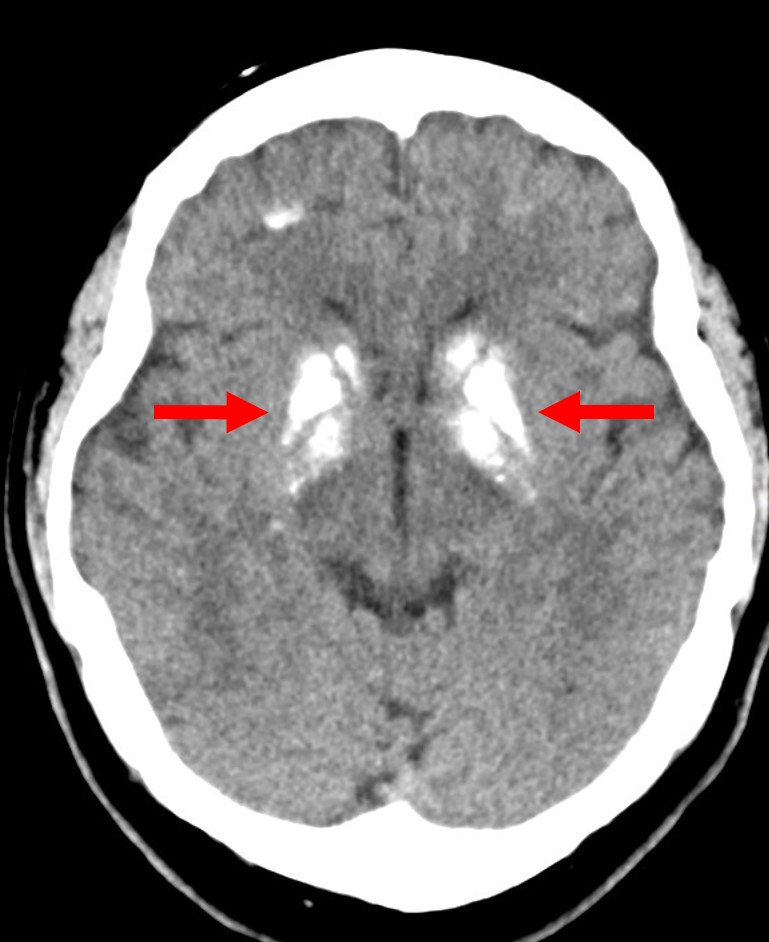About FSGAI
Fahr's Syndrome, also known as Primary Familial Brain Calcification (PFBC), is a rare neurological disorder characterized by bilateral calcification of the basal ganglia and other brain regions. First documented by German neurologist Karl Theodor Fahr in 1930, this condition affects approximately 1 in 1,000,000 individuals.
Neurological Manifestations
Primary symptoms include parkinsonian features (bradykinesia, rigidity, tremor), dystonic movements, and choreoathetosis. These manifestations result from calcium deposits disrupting neural pathways in the basal ganglia, particularly affecting motor control circuits.
Genetic Basis
Mutations in key genes (SLC20A2, PDGFRB, PDGFB, XPR1) affect calcium phosphate homeostasis. These genetic alterations lead to progressive accumulation of calcium deposits in brain vasculature and surrounding tissues.
 CT scan showing bilateral calcification in basal ganglia (arrows)
Source: RadiologyCases.my (2024)
CT scan showing bilateral calcification in basal ganglia (arrows)
Source: RadiologyCases.my (2024)
Cognitive Impact
Neurocognitive dysfunction includes executive function deficits, memory impairment, and attention disorders. These symptoms correlate with calcification patterns in specific brain regions, particularly affecting frontal-subcortical circuits.
Diagnostic Criteria
Diagnosis requires neuroimaging (CT/MRI) showing bilateral calcification, clinical symptoms, absence of metabolic/infectious causes, and genetic testing. Family history analysis supports autosomal dominant inheritance patterns.
